#central auditory processing disorder
Explore tagged Tumblr posts
Text
Auditory Processing Disorder/Jumbled Noise
Risks If your cat has APD, they can get two types of headaches, lose auditory information, and be unable to access words as well as get an earache.
Comorbid What's frequently comorbid with APD is Autism, ADHD, light sensitivity and sensory processing disorder.
WIP status Jumbled Noise has a lot of conditions that need polishing or lumping it together. Earaches and the two kinds of headaches could be lumped into overstimulation, but at the same time, having the spectrum from mild headaches that you can more or less ignore to headaches that disable you from living life is very affirming to people like me who have APD. Word loss versus verbal shutdown is also something that could be lumped together but may be better apart. After all, being able to speak but unable to get the exact words you want is not the same as being unable to speak temporarily, but from an outside perspective, it may be confusing on why they are separated. Jumbled Noise still needs a lot of polish but without more community feedback, it is at a stalling point.
History Fun fact! APD and HSD were the first two conditions Mod Song ever coded completely by hirself! APD is something that they never really saw representation for so when shi got the opportunity to add it, they lept at it.
What's next? What is next is making more thoughts and waiting until we get community feedback about APD.

[ID Begins: A screenshot of a grey kit with Jumbled Noise. End ID]
#mod song#condition deep dive#dadm clangen#disabilities and disorders mod#clangen#auditory processing disorder#central auditory processing disorder
10 notes
·
View notes
Text
If you tease anyone ANYONE'S way of speaking for ANY REASON
You get to go in the shame hole.
67 notes
·
View notes
Text

I was looking through a Snoopy children’s book and found this relatable scene.
Auditory Processing Disorder feels: when you can’t understand a person and you’re too exhausted to decipher what’s being said so you throw in the towel for the day.
#auditory processing disorder#central auditory processing disorder#learning disabilities#capd#apd#learning disability
81 notes
·
View notes
Text

Auditory Processing Disorder, also known as Central Auditory Processing Disorder is a learning disability where there is a deficit in a person's ability to internally process and/or comprehend sounds. I am on the more severe side of the auditory processing disorder spectrum. The main reason why I have a learning disability is because if I didn’t have auditory processing disorder, then I would not have Dyslexia and ADD. I was technically diagnosed with Central Auditory Processing Disorder, then Auditory Processing Disorder, still the same thing, nonetheless. When I was in school, there were times I struggled to do my work or read because the kids in my class would not shut up and do their own work. The students would not do their reading or literally anything else in silence. I have a hard time focusing and doing my work; I feel like most people don't mind the sound of people talking or music playing in the background while doing work. They can easily tune out sounds and still get their work or reading done. Also, if there is too much noise or too many things going on while someone is talking to me, I can easily miss what they are saying or mishear them. I will think I know what they said, but I will be wrong. They have really said something completely different, but I miss it because of my Auditory Processing Disorder.
Therefore, my inspiration with the blurry background of people talking and music playing, while the teacher is talking is from my Auditory Processing Disorder. Also, the blurry text shows what the teacher is saying while blending in the background because to me it’s just all in the same sounds. Also, the processing eyes are to show the processing part of the Auditory Processing Disorder. That is my inspiration for the Auditory Processing Disorder art piece.
#art#artwork#my artwok#central auditory processing disorder#auditory processing disorder#awareness#learning disability#neurodiversity#neurodivergent#digital art#digital aritst#digital arwork#digital painting#digital drawing
6 notes
·
View notes
Text
I need to get on the sides of tumblr that have posts about my specific neurodivergenceys this is far too correct
Dealing with auditory processing disorder
LAWFUL: take the parts you heard and turn it into a clarifying question, e. g. "you saw your cousin where?" or "she's writing a what?"
NEUTRAL: "what did you say?"
CHAOTIC: take a wild stab at what the person said, e. g. "you want to baptize a mackerel?"
#auditory processing disorder#central auditory processing disorder#why the hell is that so long but its not well known so I cant shorten it to APD or CAPD help#its the neurodivergency
69K notes
·
View notes
Text
What are the five signs of hearing loss?
If a person’s hearing abilities fall below those of someone with normal hearing, defined as having hearing thresholds of 20 dB or higher in both ears, they are said to have hearing loss. This condition may affect one or both ears and can be categorized as mild, moderate, moderately severe, severe, or profound.
The nerve cells or tiny hairs in the cochlea that transmit sound impulses to the brain may deteriorate with age and exposure to loud noise. Hearing loss results from the ineffective transmission of electrical impulses when delicate nerve endings are damaged.
What are the five signs of hearing loss and when do you need to see an audiologist?
Tinnitus
Did you know that one in five people with hearing loss has tinnitus? Also known as ringing in the ears, this condition occurs when a person is subjected to extraordinarily loud noises (i.e gunshots, explosions).
Even though many people might not even be aware they have both diseases, almost 90% of those with tinnitus also suffer hearing loss. Tinnitus typically mimics your loss’s rhythm. Your tinnitus may sound like a high-pitched ringing or buzzing if you have problems hearing high frequencies.
Tinnitus may be an early sign of hearing loss or some other underlying medical disease, so if you experience any weird hearing symptoms, seek medical attention from an audiologist.
Distorted Hearing
Hearing may eventually go better on its own if the cause of the muffled sound is anything as simple as congestion brought on by a cold or hay fever. However, hearing loss or more severe disorders like head trauma or tumor can occasionally cause muffled hearing.
A common cause of hearing loss is having too much ear wax (cerumen). Sometimes ear wax buildup in the ear canal results in a blockage. Over time, this ear wax may harden and dry up, increasing the possibility of impaction. Your hearing may suffer from impacted ear wax.
Listening Fatigue
When your brain has to focus in order to separate sounds from ambient noise before processing and converting them into useful information, listening fatigue sets in. People who appear “weary of listening” are frequently mistaken for being rude, apathetic, or uncaring.
The brain becomes stressed and eventually exhausted when hearing loss is prevalent because the brain must compensate for the impairment and work harder than usual to process information.
Struggling to hear even in mild to moderate background noise
Talking with others may be more difficult if you have hearing loss. It’s likely that your ears have problems blocking out external sounds if you have trouble hearing discussions when there is background noise. The first sign of moderate hearing loss or an auditory processing issue is usually linked to difficulty hearing, even with light background noise (APD).
Diminished interest in social engagements
Hearing loss is a major contributor to social isolation in humans. When hearing becomes difficult, people frequently choose to disengage and isolate themselves rather than participate in social, professional, or business settings where interaction is essential. If left untreated, hearing loss can result in psychological and social problems that have an impact on one’s emotions and society.
Losing your hearing can make it difficult for you to enjoy and take part in many of life’s most treasured moments, such as hearing the voice or laughter of a loved one, having meaningful conversations with family and friends, appreciating the sounds of nature, or watching your favorite TV shows or sporting events.
Get your hearing tested
If you suspect that you or a loved one is exhibiting early signs of hearing loss, make sure to schedule an appointment with an audiologist to get your hearing tested. Hearing Health Clinic offers comprehensive hearing tests in Osseo, MN and nearby communities.
The post What are the five signs of hearing loss? appeared first on Hearing Health Clinic.
from Hearing Health Clinic https://hearinghealthmn.com/what-are-the-five-signs-of-hearing-loss/ via Hearing Health Clinic
1 note
·
View note
Text
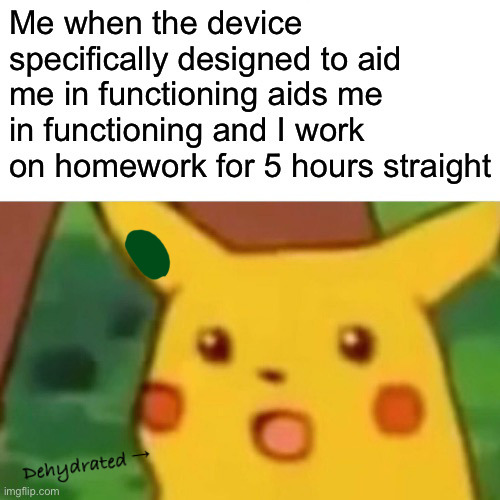
#so anyways I got an ear filter for my recent capd diagnosis and then the first day I was in the zone for 5 hours straight.#still to early to tell if it was really the filter but I mean. I mean. I thought I was gonna crap out 4 hours ago.#actuallyautistic#actually autistic#actually adhd#actually capd#(central) auditory processing disorder#fun fact it’s an academic argument about whether it should be called capd or apd but it’s all the same thing#your neurons transfer the signals from your ears up to your brain at slightly different speeds#and so the audio signals you get are slightly desynced#what the filter does is physically slow down the sound as it travels thru one ear#thus resyncing the audio and reducing your subconscious load#fascinating stuff.
8 notes
·
View notes
Text
Dark Grey Matter: Neurodivergence and the Goth Experience
[originally posted here]
Alternative subcultures have existed for nearly as long as human society. Modern examples include the flappers of the 1920s, the beatniks of the 1950s, and the hippies of the 1960s. These alternative subcultures have been defined by music, literature, fashion, and film. For those outside of these subcultures, it may be unclear what would make one wish to exist in a group that is not part of the norm. While there are many factors for each individual, it is clear that neurodivergence plays at least part of a role for many people. For the case study, I will be using the goth scene, being a member myself and because it is both newer and longer lasting than some of the others, being what to subcultures as water is to liquids, if you may. There have already been analyses of specific post-punk musicians and their neurodivergent diagnoses - Gary Numan and David Byrne being autistic, Danny Elfman with his ADHD/OCD combo, and Blixa Bargeld being synesthesic, not to mention speculation about countless others. This is not one of those. The musicians are important, but this is more about the members of the subculture as a whole, whether they produce music or not. This is also not to say that every goth or person in any given alternative subculture is neurodivergent or that every neurodivergent person is involved in an alternative subculture, just an observation on the overlap between the two.
To start us off, let us focus on what is typically seen as central to the goth subculture: the music. There are currently a myriad of subgenres of goth music: darkwave, deathrock, gothic rock, and ethereal wave, among others. It is sometimes difficult to define goth music as a whole, especially with bands that bleed into non-goth specific post-punk genres, such as shoegaze or industrial and with different terminology being more popular in different regions and eras. A rough definition for all of these subgenres would be a variety of alternative rock music with origins in punk (though some have influence that includes glam rock, synthpop, and even Caribbean-British dub reggae) that typically values minor chords, a heavy bassline that dictates the melody, slower rhythms, mezzo vocals, and artful, often dark lyrics. Why would this genre appeal to neurodivergent people specifically? The initial appeal is the sound. A common comorbidity with autism, ADHD, and other variations of neurodivergence is Auditory Processing Disorder or other differences in sound processing. Those thusly impacted may respond to verbal cues more slowly, be irritated by certain sounds more easily than others, and mishear words more frequently. There are numerous hypotheses to address differences in musical taste and likely multiple contributing factors and differences in audio processing may be one of those factors. While not every instance of APD is exactly the same, it is easy to see how a music genre that focuses on deeper pitches, more pronounced vocal styles, and slower rhythms would aurally appeal to individuals who experience auditory processing differences.
Aside from the way that the music sounds, there is also great appeal in the lyrical content. Certainly, goth bands touch on a variety of topics, from the historical monologues on the World Wars by Joy Division and the Pagan rites of Inkubus Sukkubus to the scathing diatribes of 1980s conservative politics by Sisters of Mercy and the sexual escapades explored by London After Midnight, just to name a few. Across the diverse set of subjects that these bands cover, there is a consistent return to one recurring theme: being an outsider observing an imperfect world. The experience of feeling like an outsider is certainly one that many neurodivergent individuals can relate to. Many neurodivergent individuals are made to feel like outsiders from a young age, often bullied by their peers for their communication styles and told by family members to behave differently, traits they have difficulty controlling. With differences in communication and internalizing the world, it is difficult to make sense of supposed social rules and forge connections. When one has similar requirements to exist happily as others but difficulty obtaining them due to reasons outside of one’s control, it is easy to recognize the world as a flawed place full of inequality and rewards for shallow traits. There is hope for those whose auditory processing differences do not manifest in alternative music, at least not exclusively. Fortunately for youth of today who still feel like outsiders, be it due to neurodivergence or anything else, but still have more mainstream aural preferences, modern pop artists are less afraid of embracing oddity and touching on feelings of isolation. Some may even serve as bridges for those with a taste for multiple genres as some pop artists have expressed an appreciation for goth artists. One now-former member of One Direction previously cited Joy Division’s Unknown Pleasures as a primary music inspiration, Dua Lipa did a photoshoot that made an homage to Siouxsie Sioux, and Billie Eilish has been seen performing in an Alien Sex Fiend shirt.
Of tertiary importance to the scene compared to music but more obvious to those not involved in the scene is fashion and makeup. The way that neurodivergent people often do not internalize social norms, current trends are often similarly not internalized, so dressing according to any sort of trend is not even considered. That being said, clothes are not necessarily chosen at random either. Something of utmost importance to many neurodivergent individuals when choosing clothes, as with many of their neurotypical counterparts, is comfort. This sometimes manifests in more obvious physical ways, such as removing tags or avoiding certain fabrics. It is easy to see how a scene that values DIY aesthetics would appeal to those with sensory differences; no one can fault one for cutting off a tag when the entire outfit is cut up and put back together with safety pins. However, there are also ways to achieve psychological comfort. Case in point, Blixa Bargeld, founding member of German industrial band Einstürzende Neubauten and arguably founder of the industrial music genre as well as former guitarist of Nick Cave and the Bad Seeds, has attributed his preference for wearing all black to to his synesthesia and finding other colors to be too overwhelming. Many black-wearers have made similar statements, with or without a diagnosis of synesthesia or something similar. Neurodivergent people also often find comfort in wearing clothing related to one’s special interest, so band shirts are a common staple, along with outfits that homage musicians, movie characters, or others they admire. There is also the issue of expression. Neurotypical people often have difficulty reading the emotions of their neurodivergent peers due to differences in emotional expression. Clothing and makeup, in addition to highlighting one’s general interests, can also help in making emotional expression more obvious to others. Of later importance, many neurodivergent individuals find that dressing in a way that labels them as a person with certain interests, this can help them attract others of similar interests. Given that many neurodivergent people have difficulty making friends and initiating social interactions, having an easy way to call to others that they are like them is socially beneficial.
In conclusion, it is clear why there is a connection between these two. Alternative subcultures are a welcoming environment for many who feel like outsiders are neurodivergent individuals are often made into outsiders by default. In addition, the sounds and sights of goth specifically appeal to many of those with specific sensory differences. With such a long, rich history that continues to this day, this subculture is fit to be quite a rewarding special interest.
40 notes
·
View notes
Text
How Does The Brain Work?
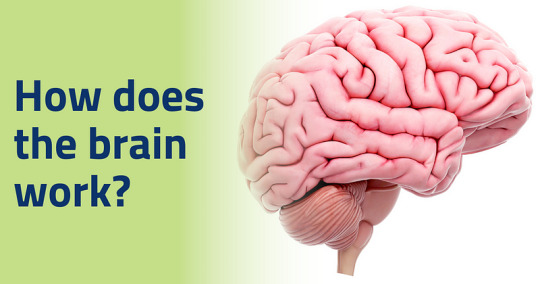
The brain stands as a marvel of biological engineering, Composing of a multitude of bodily functions ranging from cognition and memory to emotions and sensory perception. Together with the spinal cord, it constitutes the central nervous system (CNS), the command center of the human body.
Composition of the Brain
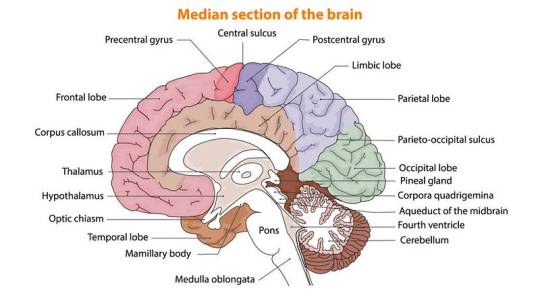
Weighing approximately 3 pounds in adults, the brain’s main structure comprises about 60% fat, interspersed with water, protein, carbohydrates, and salts. Unlike muscles, it houses a complex network of blood vessels and nerves, including neurons and glial cells.
a) Gray and White Matter
Within the central nervous system, gray matter and white matter occupies distinct regions. In the brain, gray matter forms the outer layer, rich in neuron somas, while white matter constitutes the inner section, primarily composed of axons unsheathed in myelin. Conversely, in the spinal cord, this arrangement is reversed.
b) Brain Functionality
The brain operates by transmitting and receiving chemical and electrical signals throughout the body. These signals regulate a myriad of processes, with the brain disseminating each input. Some signals remain confined within the brain, while others traverse the spinal cord and nerves, disseminating information across the body’s expanse. This composes neural network relies on billions of interconnected neurons.
Major Brain Regions and Their Functions
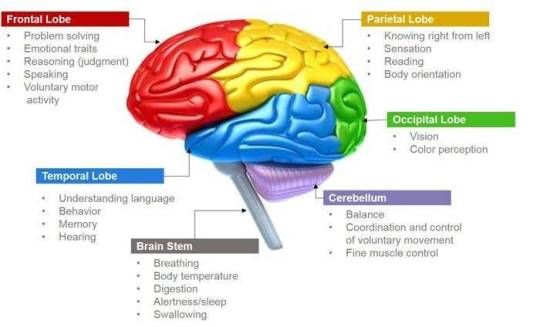
1.Cerebrum
Dominating the brain’s landscape, the cerebrum encompasses the cerebral cortex and underlying white matter. It governs a spectrum of functions, including motor coordination, temperature regulation, language processing, emotional regulation, and sensory perception.
2. Brainstem
Serving as the bridge between the cerebrum and spinal cord, the brainstem comprises the midbrain, pons, and medulla. It regulates vital autonomic functions such as heart rate, breathing, and reflexive responses.
3. Cerebellum
Nestled at the posterior aspect of the brain, the cerebellum coordinates voluntary muscle movements, posture, balance, and motor learning.
Brain Coverings
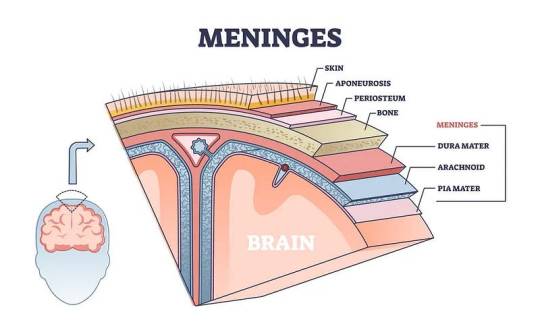
a) Meninges
Three layers of protective membranes, collectively known as meninges, enshroud the brain and spinal cord. These layers — dura mater, arachnoid mater, and pia mater — shield the delicate neural tissue from physical trauma and infection.
b) Lobes of the Brain
Each hemisphere of the brain comprises four lobes, each harboring distinct functional domains:
Frontal Lobe: Governing executive functions, motor control, and higher cognitive processes.
Parietal Lobe: Integrating sensory information, spatial awareness, and perception of pain and touch.
Occipital Lobe: Specialized for visual processing and perception.
Temporal Lobe: Involved in auditory processing, language comprehension, and memory consolidation.
Deeper Brain Structures
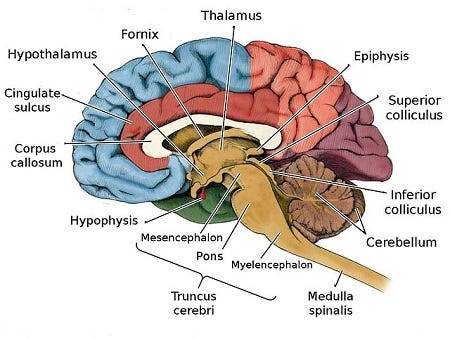
These encompass important structures such as the pituitary gland, hypothalamus, amygdala, hippocampus, and pineal gland, orchestrating hormone secretion, emotional regulation, memory consolidation, and circadian rhythms.
Blood Supply
The brain receives its oxygenated blood supply through the vertebral and carotid arteries, ensuring adequate perfusion of neural tissue. The main network of blood vessels, including the Circle of Willis, safeguards against ischemic insults and facilitates intraarterial communication.
Cranial Nerves
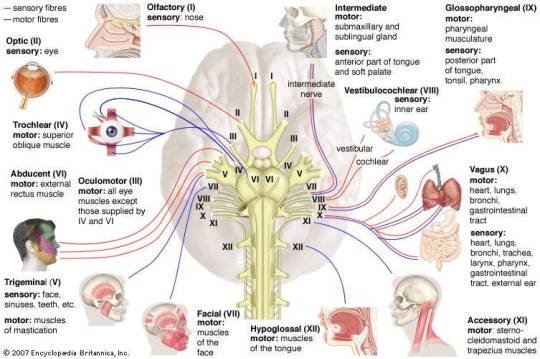
The twelve pairs of cranial nerves, originating from the brainstem, mediate a diverse array of sensory and motor functions, encompassing olfaction, vision, facial expression, and auditory perception.
Comprehending the anatomy and functionality of the brain fosters a deeper appreciation of its complexity and facilitates advances in neuroscientific research and therapeutic interventions aimed at diminishing neurological disorders.
Understanding the detailed anatomy and functionality of the brain is crucial for medical students embarking on their journey of study. Expert Academic Assignment Help offers invaluable assistance in navigating the complexities of neuroscience and related subjects. By leveraging expert guidance and support, students can excel in their medical education and contribute to advancements in the field of Medicine. Email us at [email protected] to embark on your path to scholarly excellence and professional competency.
#studying#studyblr#study blog#study aesthetic#student life#student#medical student#medical school#medicine#university student#university#university life#assignment help#medical students#nursing student#nursing school#healthcare#health and wellness#mental health#psychology#phd life#phd thesis writing service#online writing#do my online class#academic writing#essay writing#academic assignments#academia
13 notes
·
View notes
Note
hello summer!
i have been to a doctor about possibly having autism once now with my mum.
she suggested that i have ADHD + CAPD rather than autism, or my symptoms were caused by a deficiency in Vitamin B12. she said that it was very unlikely i had autism, just because she thinks that throughout all my life we would've caught it by now.
it's possible it's just a deficiency in Vitamin B12, because you mostly get the vitamin from meats. i am mostly vegetarian and don't eat a lot of meat.
if the deficiency in Vitamin B12 is the case, then all my symptoms should go away if i start taking Vitamin gummies or something to get the required vitamins.
It would be great if all these problems went away as easy as that, but then it doesn't entirely explain some other things?
like, for example, autistic people can have poor proprioception, which i feel i relate to. i have gonr at most an entire 14 hours without eating because i simply couldn't sense i needed to eat. it's an ongoing problem for me that i can't sense that i need to eat/drink, and it isn't exactly new. it's been going on for a while and for 2-3 months i thought i must have some kind of eating disorder, but of course, no eating disorder i researched described what i was experiencing. but then, i discovered that it can be an autism thing.
for the past maybe 4.5 months i've been researching what exactly autism is and how it appears. i've looked back on experiences in my life and thought that it made sense i could have autism.
i feel like it can't really be just a deficiency, but i have no idea how to say that. i'm not great at communicating why i think something, so i don't want to say it to my mum, because if i do she'll ask why and the answer is complicated and long, and i always seem to stutter and trip over my own words. i just really struggle to explain complicated things, and the more i fail to explain, the harder it gets because i start to panic that it's not working.
and then, if it is just a deficiency and my sensory issues go away as fast as they just suddenly appeared (noise sensitivity just kind of appeared in january.), then what about my other experiences? if it's just a deficiency and not anything more, then is there just something wrong with me? it's really frustrating to me, because i have no idea what it is.
i've taken spectrum tests online, most of which said i had moderate to high symptoms of ASD, and i've seen that people afab often end up learning early how to mask and don't get diagnosed (i'm afab).
having ADHD + CAPD could explain some stuff for me too. i was told that my concern isn't being pushed aside for what the doctor thinks, but it feels a little like it is.
she gave us some tests and there was one for my teacher. i gave it to her a week ago, and she hasn't handed it back. i'm hoping she can give it back soon because there's only a few days left before summer begins and my school year ends.
i guess i'm just worried in general about this, + some other stuff going on in my life right now. thank you for reading through this, i appreciate that. it was just kind of a rant. 💞
Hi there,
I did some research on ADHD and Central Auditory Processing Disorder (CAPD). I found one article that goes into detail about both of these. Here are some excerpts:
People with ADHD may have trouble processing sensory input, including auditory information. For example, a 2017 studyTrusted Source notes that children with ADHD do not perform as well on auditory processing tests. However, they perform similarly to neurotypical children after treatment with methylphenidate. This suggests that auditory processing issues may be an ADHD symptom.
ADHD affects executive functioning, attention, and impulse controlTrusted Source. This may make it more difficult for people to process sensory input, including sounds. It may be difficult or impossible for a person with ADHD to interpret sounds or distinguish one sound from another, particularly in distracting environments.
Research also suggests that people with ADHD may have other sensory processing issues. They might crave sensory stimulation through chewing or be less responsive than typical to sensory input, such as loud noises or bright lights.
Similarly, symptoms of APD may mimic those of ADHD. This is because a person who cannot correctly interpret sound may appear to be inattentive. Their sensory difficulties can also affect behavior. A 2018 systematic review emphasizes that children with APD have similar characteristics, including behaviors and test scores, to children with ADHD.
It is also possible for a person to have both ADHD and APD.
The article will be below if you want to read it.
If Vitamin B12 is the issue, I would try to take some vitamins and see if your symptoms improve. If not, then I would talk to your doctor.
I should also mention that the signs and characteristics of both ADHD and Autism have quite the overlap. Here’s a helpful Venn diagram to show the similarities and differences.
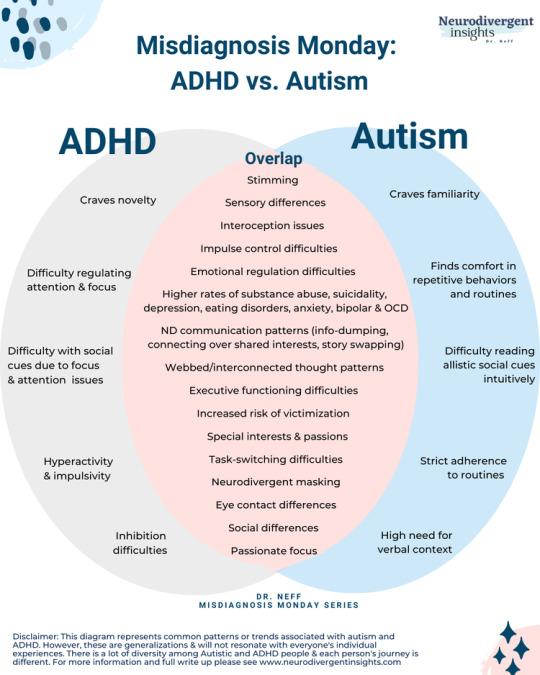
There’s also another Infograph talking about the statistics of ADHD and Autism:
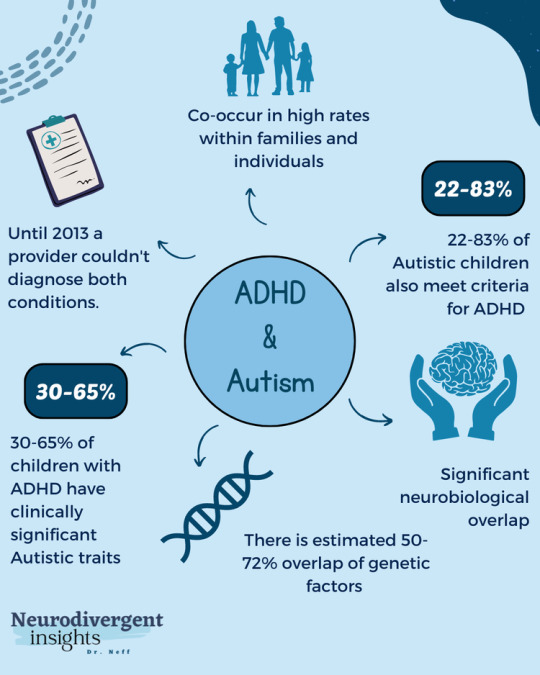
I’ll also leave the article below so you can check it out.
I really hope you find this information helpful. I wish you luck and I hope you figure out what’s going on.
Thank you for the inbox. I hope you have a wonderful day/night. ❤️
38 notes
·
View notes
Text
youtube
Complete Information on Auditory neuropathy with Treatment and Prevention
Auditory neuropathy is a hearing disorder in which audio enters the inner ear usually but the infection of signals from the inner ear to the mind is impaired. An individual with auditory neuropathy may be capable read more here to learn sounds, but would yet get trouble recognizing spoken words.
Sounds may fade in and out for these individuals and seem out of sync. The condition probably has more than one cause. In some cases, it may involve damage to the inner hair cells - specialized sensory cells in the inner ear that transmit information about sounds through the nervous system to the brain. Several factors have been linked to auditory neuropathy in children. However, a clear cause and effect relationship has not been proven. Other causes may include faulty connections between the inner hair cells and the nerve leading from the inner ear to the brain, or damage to the nerve itself.
A combination of these problems may happen in some cases. Although outer hair cells- hair cells adjoining to and more numerous than the inner hair cells - are mostly more inclined to damage than inner hair cells, outer hair cells appear to operate usually in folk with auditory neuropathy. Some people with auditory neuropathy have neurological disorders that also cause problems outside of the hearing system. Auditory neuropathy can affect people of all ages, from infancy through adulthood. The number of people affected by auditory neuropathy is not known, but the condition affects a relatively small percentage of people who are deaf or hearing-impaired. Auditory neuropathy runs in some families, which suggests that genetic factors may be involved in some cases.
People with auditory neuropathy may get natural hearing, or hearing departure ranging from balmy to serious, they ever have impoverished speech-perception abilities, meaning they have problem agreement address understandably. Some patients with auditory neuropathy appear, based on history and initial behavioral testing, to fit into the category of "central auditory processing disorder". However, evaluation of such patients with physiological measures sensitive to auditory nerve disorders shows a more peripheral site consistent with auditory neuropathy. Sometimes people with auditory neuropathy are subsequently diagnosed with diseases such as charcot marie tooth disease and friedreich's ataxia. In these cases, auditory neuropathy may be a symptom of the more global effects these diseases rather than an isolated neuropathy of the ear-brain connection.
2 notes
·
View notes
Text
This is your very firm reminder that things only become a disorder when they start to affect your day to day life. They can be very real symptoms of a disorder before that and they can combine to form a disorder but on its own,
hypermobility is not hEDS or HSD
trauma and stress is not PTSD
strong emotions are not bipolar disorder or BPD
vasovagal syncope is not POTS
heart palpitations are not POTS
fatigue is not ME
auditory processing difficulties are not central hearing loss or (C)APD
tactile sensory difficluties are not central sensitisation syndrome
distractability is not ADHD
anxiety is not GAD
sadness is not MDD
The current medical system is ableist, classist, and otherwise discriminatory so it is important to investigate on your own but self-diagnosing when you don't fully meet the criteria and then inserting yourself into conversations that are about much more severe symptoms invalidates others. Hell, even if you're professionally diagnosed, inserting yourself into conversations about more severe symptoms invalidates others.
There is a really fine line to walk here but I've had so many people recently invalidate my symptoms recently. I have so so many examples but these are just some more recent ones I need to get off my chest:
'I basically have hEDS. I just have normal collagen' Then you have no idea how it feels to struggle in the way I struggle to do basic things like sitting up, or eating, or seeing, or walking, or working from home at a desk job.
'I'm autistic and find it hard to hear in crowds, I know how you feel.' You don't know what it's like to have a central hearing disability and not be able to get jobs I really want for safety reasons because I'm hard of hearing even with HAs. Or lose the ability to speak properly because I have zero auditory feedback sometimes. Or not be able to take phone calls on my own sometimes.
'I have PTSD from [insert not actually traumatic event].' Do you really have to avoid entire parts of your life, lose friends because they found it too stressful to keep you alive when parts of you were trying to escape the hell that is the inside of your mind, and watch your life fall apart no matter how good things are going because of something that happened (or kept happening) years ago?
'I feel woozy when I stand up sometimes too. Have you tried sitting on the edge of your bed for a minute?' How about having to beg for a bed and to keep your own clothes on when you're in the ER because you can't get your blood volume up on your own and being denied that dignity and having to lie on the floor in a populated corridor wearing a gown that doesn't gover you because you can't tied it because of the reason you're there in the first place?
'That's how I feel before I have my coffee in the morning lol!' No. You'll never be able to imagine what it's like to be pulling a never-ending all-nighter because you'll wake up even more exhausted every. single. day.
#I have so many more examples I could give but I'll stop#I'm so tired of feeling mocked#especially by people with similar symptoms of lesser magnitude#I don't even know what to tag this#vent post#ableism#disability#medical#trauma
6 notes
·
View notes
Text
How should I deck out my noise cancelling headphones? I'm taking suggestions!
#Shortcake/Muffin - Chocolate/Batter#nueropunk#apd#central auditory processing disorder#auditory processing disorder#noise cancelling headphones
8 notes
·
View notes
Text
Bruh, I swear, I always hear Will Wood singing "gravy" at the end of "Your Body, My Temple". Even though I know what he says and try to force my brain to hear it, it's very difficult for me to understand him saying "baby".
How bad is my hearing?
No kidding, I have a strong suspicion that I have Central Auditory Processing Disorder.
3 notes
·
View notes
Text
Which of the following is the primary focus of neuropsychology across the lifespan? A) Brain structure only B) The relationship between brain and behavior C) Cognitive processes only D) Behavioral patterns in infancy
What is the central concern of neuropsychological research on brain and behavior? A) Structural anatomy of the brain B) How brain function affects cognition and behavior C) Understanding animal behavior D) The role of genetics in development
Which brain structure is most strongly associated with memory formation? A) Amygdala B) Hippocampus C) Cerebellum D) Thalamus
Which of the following is an example of how neuropsychology integrates with a biblical perspective in professional psychology? A) Focusing exclusively on the biological basis of behavior B) Considering spiritual and moral aspects of cognitive functioning C) Ignoring the role of faith in therapeutic practice D) Viewing psychological disorders as purely biochemical in nature
Which research methodology is commonly used in developmental neuropsychology to examine brain activity? A) Electroencephalography (EEG) B) Behavioral observation C) Cross-sectional surveys D) Longitudinal questionnaires
At which developmental stage does the prefrontal cortex show significant growth in areas related to executive function? A) Early childhood B) Adolescence C) Late adulthood D) Infancy
What is the primary role of the frontal lobe in neuropsychology? A) Processing visual information B) Regulating emotional responses C) Motor control and higher cognitive functions D) Auditory processing
Which term refers to the brain’s ability to reorganize and form new neural connections? A) Neuroplasticity B) Neurogenesis C) Synaptogenesis D) Cortical remapping
0 notes
Link
Central Auditory Processing (CAP) Information Tammy Riegner, Au.D., Jessica Godovin, Au.D. PA-Newtown Square/Philadelphia: Jessica Loson, Au.D. NJ-Voorhees/Deptford: Jenna Pellicori, Au.D. According to the American Speech and Hearing Association, central auditory processing disorder (CAPD), is a complex problem affecting approximately 5% of school-age children. These children may not be able to process the information they hear in the same way as others because something adversely affects the way the brain recognizes and interprets sounds, most notably the sounds composing speech. The behaviors of other disorders, such as a learning disability, language delays, and attention deficit disorder can mimic the signs and symptoms of a CAPD; consequently, it is recommended that these disorders be ruled out prior to conducting a Central Auditory Processing evaluation. Multidisciplinary testing is very important in determining not only evaluation candidacy but potential contributing diagnoses. Risk factors associated with auditory processing disorder, may include but are not limited to: • Asphyxia/Anoxia • Severe Prematurity • Reoccurring Ear Infections • Traumatic Brain Injury • Family history of CAPD • Lead Exposure Further evaluation may be warranted if the following auditory behaviors and characteristics apply: • Difficulty recalling short or long term information • Mishears information (i.e.: “nose” for “toes”) • Says “huh” or “what” frequently • Difficulty following verbal multi-step instruction • Confuses similar words or sounds • Unusually bothered by loud or sudden noises • Requires repetition of auditory information • Struggles with phonics, spelling, or writing • Difficulty in the presence of background noise • Does opposite of what is requested Candidates for CAPD testing must meet the following criteria: • Developmental and chronological age of at least 7 years • Normal peripheral hearing sensitivity (No significant hearing loss) Contraindications to testing include: cognitive deficits, non-verbal or non-native English speaking, global developmental delays, below average scoring on IQ testing, severe or unmanaged Attention Deficit Hyperactivity Disorder (ADHD), low functioning Autism Spectrum Disorder (ASD), Auditory Neuropathy Spectrum Disorder (ANSD), or significant receptive and/or expressive language disorders. Courtesy of Neumors Pediatric Hospital (Wilmington, DE). [Read More]
0 notes